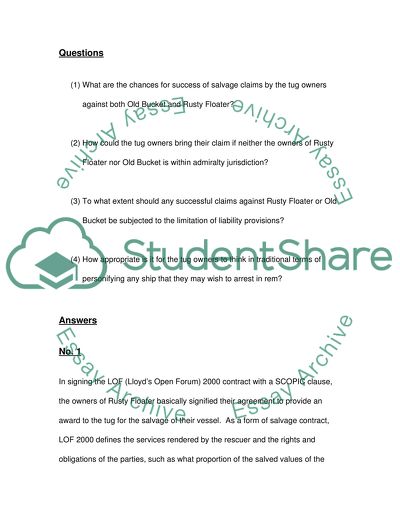Cite this document
(“The rights and obligations of parties involved in marine salvage under Essay”, n.d.)
Retrieved from https://studentshare.org/law/1520629-admiralty-law
Retrieved from https://studentshare.org/law/1520629-admiralty-law
(The Rights and Obligations of Parties Involved in Marine Salvage under Essay)
https://studentshare.org/law/1520629-admiralty-law.
https://studentshare.org/law/1520629-admiralty-law.
“The Rights and Obligations of Parties Involved in Marine Salvage under Essay”, n.d. https://studentshare.org/law/1520629-admiralty-law.


